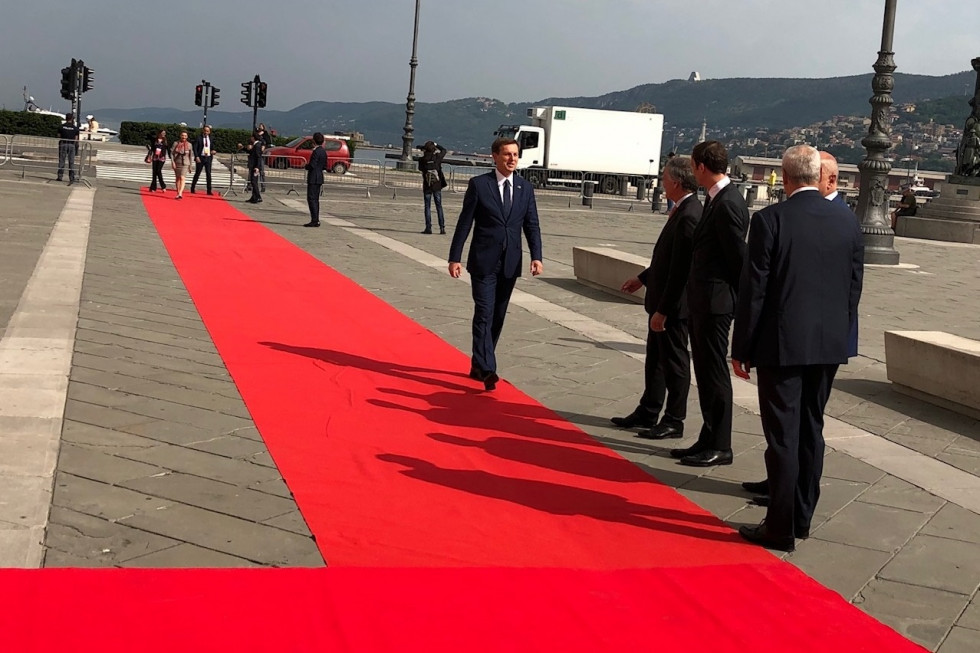In Trieste, Minister Dr Cerar advocates EU enlargement for countries fulfilling membership criteria
- Ministry of Foreign Affairs
Minister Cerar began his address by thanking the Italian Presidency for reinvigorating the Initiative, which is celebrating its 30th anniversary. He noted the historical significance of the Initiative, which was formed in 1989 as the first regional forum following the fall of the Iron Curtain – the Quadragonale, uniting Italy, Austria, Hungary and the former SFRY, and which was later renamed the CEI.
In the changed geopolitical environment, the Foreign Minister sees regional cooperation as the right way forward to build trust between countries that have already joined the EU and aspiring members. In the future, the CEI should fine-tune its activities in order to pass on the first-hand experience and know-how of EU Member States to countries that have entered accession negotiations or are waiting for negotiations to start.
“On top of state-level cooperation within the CEI, Slovenia encourages links between local communities and cities,” said the Minister.
He underlined that a positive message concerning continued EU enlargement should be sent to the Western Balkan countries that have met the criteria for launching negotiations with the European Union. “It is Slovenia’s belief that the June European Council should give a green light to countries that, by meeting all the required criteria, have received a positive note from the European Commission as regards their readiness to open negotiations. North Macedonia took a bold move by endorsing the Prespa Agreement, which ended the long-standing name dispute with Greece. Such daring compromise must be rewarded,” concluded the Minister.
On the margins of the ministerial meeting, the Minister is scheduled to meet with his counterparts from Italy, North Macedonia and Hungary.
Since its inception, one of the CEI’s main goals, which include sharing experience and fostering cultural, scientific, tourism, economic and cross-border cooperation, has been to support its member states that have not yet joined the EU in the accession process. To achieve this goal, the CEI strives to ensure a sustainable influence on capacity building in non-EU CEI member states, so that they may consolidate their institutional, economic, cultural, infrastructural, scientific and other capacities in order to meet EU standards. Thirty years ago, the present-day Central European Initiative – the first regional forum after the fall of the Iron Curtain – was established as the Quadragonale between Italy, Austria, Hungary and the former SFRY. In 1992 it evolved into the CEI.
Today, the CEI has 17 member states: Albania (since 1996), Belarus (1996), Bosnia and Herzegovina (1992), Bulgaria (1996), Croatia (1992), the Czech Republic (1993), Hungary (1989), Italy (1989), Moldova (1996), Montenegro (2006), North Macedonia (1993), Poland (1991), Romania (1996), Serbia (2000), Slovakia (1993), Slovenia (1992) and Ukraine (1996). Under the Italian Presidency, an invitation to participate has been extended to Greece and to Austria, which last year withdrew from the CEI.


